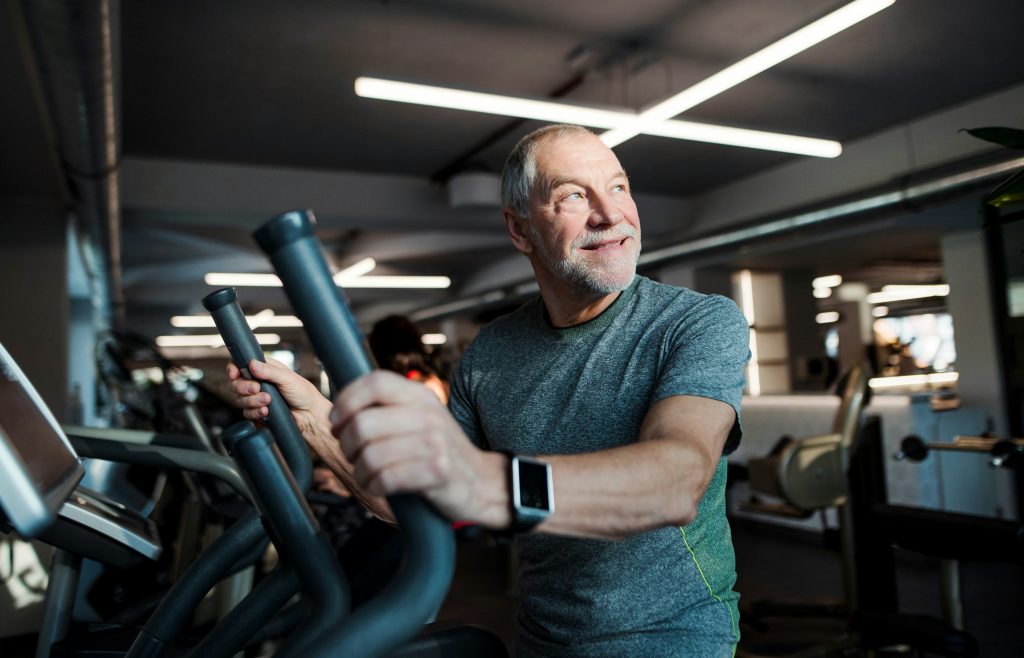Ageing is an inevitable reality of life, but it doesn’t have to mean a decline in health or vitality in the short term. Naturally, a lower biological age is linked with a lower risk of developing cardiovascular disease, immune dysfunction, metabolic disorders, and other age-related conditions, however, these health risks can potentially be minimised in an individual by adopting a healthier way of life. Embracing healthy ageing involves adopting habits and attitudes that promote physical, mental, and emotional well-being. With the right approach, getting older can be a fulfilling journey filled with new experiences and opportunities. Here are 7 tips to help you embrace healthy ageing and live your best life at any age.
Stay Proactive About Healthcare
Regular medical check-ups and screenings are essential for detecting and managing health conditions as you age. The way in which you go about undertaking health screenings and check-ups will depend heavily on your age and existing health condition.
According to the Victorian Department of Health, screening and assessment procedures vary significantly between older and younger individuals. In many cases, the symptoms of various conditions are quite clear cut when you are young; the issue or discomfort you are having is indicative of where the problem lies.
In comparison, older adults tend to show atypical, non-specific symptoms when having medical checkups, which can make things more difficult to diagnose. This may be due to the fact that there are various parts of the body that are starting to deteriorate over time, whereas in a young person this is not the case. For instance, while younger people with urinary tract infections usually experience symptoms like frequent urination and bladder pain, older adults might first show signs of confusion or experience falls, as the usual symptoms can be masked by age-related physiological changes.
Distinguishing between what is ‘normal’ and what is ‘abnormal’ becomes increasingly complex with age. As individuals age, they undergo a general decline in various bodily systems and metabolic functions, each at different rates. Identifying and addressing these changes are critical to prevent further health decline and to help older adults maintain their health and well-being.
In short, normal ageing is a complex process and will vary widely depending on each individual. It is crucial to stay up-to-date with vaccinations, screenings, and preventive care to ensure your health is being properly managed by trained health professionals.
Take any prescribed medications as directed and communicate openly with your healthcare provider about any concerns or symptoms you may have. Be proactive about managing chronic conditions and seeking treatment when needed.
Prioritise Physical Activity
Regular exercise is essential for maintaining muscle strength, flexibility, and cardiovascular health, even in men over 70 who may also have complicating factors due to their age.
Regular exercise is key to healthy ageing. Countless studies have shown that exercise attenuates the negative effects of ageing in various ways, both physically and psychologically. Your body craves movement and exercise; it rewards your mind when it receives this consistently.
Aim for a combination of aerobic exercise, strength training, and flexibility exercises to maintain muscle mass, bone density, and mobility. Even simple activities like walking, swimming, or gardening can have significant benefits for your overall health. Find activities you enjoy and make them a regular part of your routine.
Eat a Balanced Diet
A nutritious diet is essential for staying healthy as you age. Focus on whole, nutrient-dense foods like fruits, vegetables, lean proteins, whole grains, and healthy fats. Limit processed foods, sugary snacks, and excessive alcohol consumption.
Stay hydrated by drinking plenty of water throughout the day. Eating well can help you maintain a healthy weight, boost your energy levels, and reduce your risk of chronic diseases.
Get Plenty of Sleep
Quality sleep is important for overall health and well-being, especially as you age. The amount of sleep you require varies depending on your age and individual needs.
The Sleep Health Foundation recommends 9-11 hours for school age children, 8-10 for teens, 7-9 for adults aged 18-64 and 7-8 for older adults (65 and over). Whilst these hours are recommended, adults who are receiving slightly more or less may still be achieving healthy and adequate sleep.
Notwithstanding, the key is to avoid sustained lack of sleep over a long period of time and establish a regular sleep schedule that works for your individual needs. Create a relaxing bedtime routine to signal to your body that it’s time to wind down. Avoid caffeine, electronic devices, and stimulating activities before bed. If you’re having trouble sleeping, talk to your doctor to address any underlying issues.
Stay Socially Connected
Maintaining social connections is crucial for mental and emotional well-being as you age. Stay connected with friends, family, and community groups. Join clubs, volunteer, or take up a new hobby to meet new people and stay engaged. Strong social ties can reduce feelings of loneliness, depression, and anxiety, while also providing support and companionship.
Keep Your Mind Sharp
Keep your brain active and engaged by challenging yourself with new activities and learning opportunities. Read books, solve puzzles, play games, or take up a new hobby. Stay curious and open to new experiences. Engaging in mentally stimulating activities can help improve cognitive function, memory, and overall brain health as you age.
Manage Stress
Chronic stress can take a toll on your physical and mental health, so it’s important to find healthy ways to manage stress as you age. Studies indicate that that biological age increases with stress, but, on a positive note, returns to baseline following recovery from stress. So essentially it’s never too late to reduce stress in your life with the goal of living longer. The peer-reviewed study suggests that exposure to continued stress can cause inflammation and damage to DNA in cells, which in turn can accelerate physical ageing.
Practice relaxation techniques such as deep breathing, meditation, yoga, or tai chi. Make time for activities that bring you joy and relaxation, whether it’s spending time in nature, listening to music, or practising a hobby.
Conclusion
Embracing healthy ageing is about more than just adding years to your life—it’s about adding life to your years. By prioritising physical activity, nutrition, sleep, social connections, mental stimulation, stress management, and proactive healthcare, you can enjoy a fulfilling and active life at any age. Remember, it’s never too late to start making positive changes for your health and well-being. Start today and embrace the journey of healthy ageing with optimism and enthusiasm.
Don’t wait to take control of your health journey; act now! Visit healthscreen.com.au to book your comprehensive health assessment and begin your path towards a vibrant, healthier future with optimism and enthusiasm. Take charge today and see how small changes can make a big impact on your quality of life.




